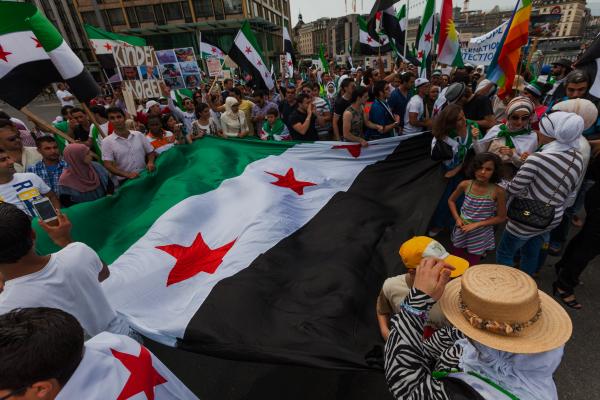THE MOST CRITICAL priority for the international community regarding Syria—in addition to addressing the immediate humanitarian needs—is to implement a cease-fire in as much of the country as possible. An arms moratorium on both the regime and rebel groups must be implemented and strictly enforced. And negotiations for a more democratic and representative government should move forward, even if it initially includes important foreign and domestic elements who do not share those values.
Especially in response to Russian military actions in Syria, President Obama is being pressured by both Republicans and Democratic hawks to militarize the situation further by sending more arms to rebel groups and increasing direct U.S. military involvement. As problematic as such military responses may be, the diplomatic alternatives aren’t much better.
Some of the most powerful opposition forces—the so-called Islamic State (ISIS) and other hardline Islamists in the al- Nusra Front—appear to have little interest in negotiations. And the prospect of working out an arrangement that would keep in power Assad’s brutal regime, which has been responsible for the vast majority of the more than 100,000 civilian deaths in the nearly five-year conflict, is extremely hard to accept.
Unfortunately, unlike most dictatorships that have been overthrown by armed or unarmed struggle in recent decades, the power in Damascus does not rest in the hands of a single dictator. Assad heads a longstanding ruling apparatus led by the Baath Party and the military that, despite its corruption and brutality, still has a social base. A fairly large minority of Syrians—consisting of Alawites, Christians and other minority communities; Baath Party loyalists and government employees; the professional armed forces and security services; and the largely Sunni crony capitalist class that the regime has nurtured—still cling to Assad’s government.
They constitute a large enough segment of Syrian society so that no anti-regime struggle can win without cascading defections, which is unlikely when the alternative is perceived to be rule by totalitarian Salafists such as ISIS.
During the first six months of the uprising in 2011, when the anti-regime movement was largely nonviolent, pro-democratic, and more diverse in terms of support, it appeared the regime could be eventually toppled. Now, in the context of armed struggle and the rise of Islamist extremists, many who once were working to topple the regime see it as the lesser evil.
Read the Full Article

